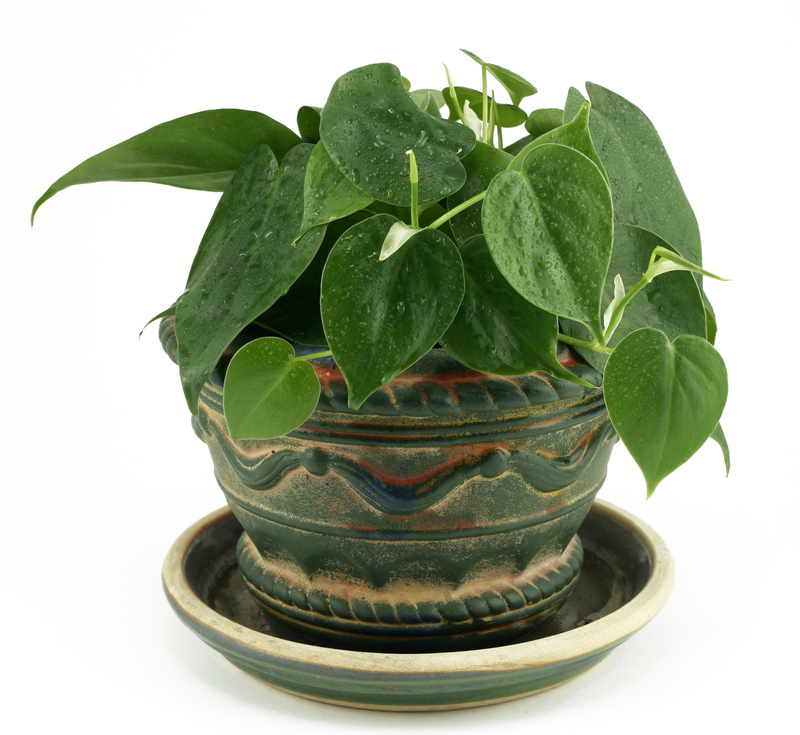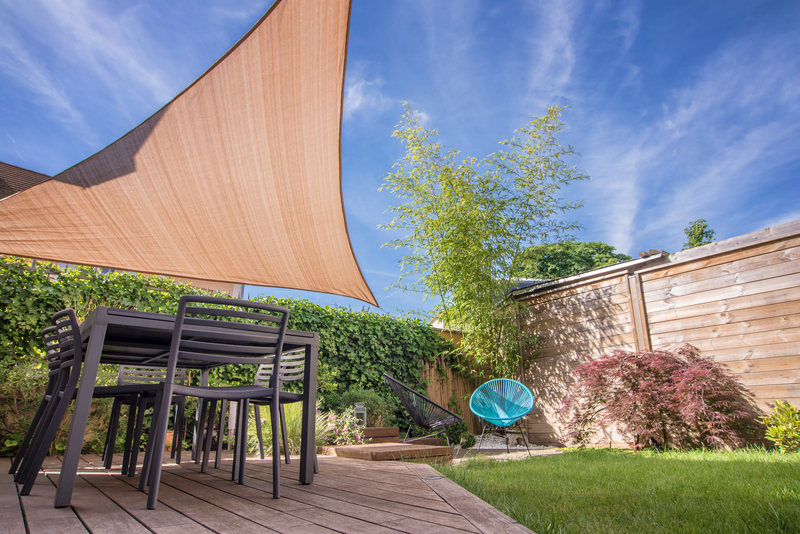Top 3 Tips to Keep Your Garden Weed-Free and Thriving
Posted on 25/09/2025
Top 3 Tips to Keep Your Garden Weed-Free and Thriving
Maintaining a lush, weed-free garden is the dream of every gardener. Unwanted weeds not only mar the appearance of your beautiful outdoor space but also compete with your plants for water, nutrients, and sunlight. If you aspire to nurture a thriving, healthy garden with minimal weed problems, you've come to the right place. In this comprehensive guide, we'll unveil the top 3 tips to keep your garden weed-free and thriving all season long. Implementing these expert strategies will help you maintain a healthy garden ecosystem and make weed control far more manageable.
Why Is Weed Control Critical for a Healthy Garden?
Weed management is essential for several reasons:
- Nutrient competition: Weeds often outcompete vegetables, flowers, and shrubs for vital nutrients.
- Water usage: Weeds consume valuable water, which can stress your cultivated plants, especially during dry spells.
- Disease harboring: Many weeds offer shelter to pests and pathogens that can spread diseases to your prized plants.
- Aesthetic impact: Overgrown weeds ruin the look of well-maintained landscapes and gardens.

Tip #1: Start with Effective Mulching
How Mulching Keeps Your Garden Weed-Free
Mulch is an organic or inorganic protective layer spread across the soil surface. It's one of the simplest and most effective ways to prevent weeds in your garden while also improving overall soil health.
- Suppresses weed growth: By blocking sunlight, mulch prevents most weed seeds from germinating or growing.
- Retains soil moisture: Mulch reduces evaporation, ensuring your plants receive adequate water.
- Regulates temperature: Mulching keeps soil temperatures steady, protecting plant roots.
- Improves soil structure: Organic mulches deteriorate over time, adding nutrients to the soil.
Best Mulching Materials for Weed-Free Flower Beds and Vegetable Gardens
- Organic Mulch: Straw, wood chips, shredded bark, leaves, compost.
- Inorganic Mulch: Landscape fabric, black plastic, gravel.
Organic mulches are highly recommended as they both suppress weeds and nourish the soil as they decompose. Apply a layer 2-4 inches thick for best weed control without suffocating your plants.
How to Apply Mulch for Maximized Weed Suppression
- Clear existing weeds: Pull visible weeds from the area first for maximum effectiveness.
- Water the soil: Moisture encourages decomposition of organic mulch and helps with plant uptake.
- Spread mulch evenly: Cover all exposed soil, but keep mulch a few inches away from plant stems to prevent rot.
Replenish mulch every growing season for continuous weed suppression and to keep your garden healthy and weed-free.
Tip #2: Practice Proper Planting and Spacing Techniques
Dense Planting to Outcompete Weeds
Strategic planting can greatly reduce weed pressure. When you plant flowers, vegetables, or groundcovers close enough, they form a dense canopy that prevents sunlight from reaching weed seeds. This technique is especially valuable for keeping garden beds weed-free.
- Follow recommended spacing: While you want robust coverage, avoid overcrowding which can cause plant stress and increase disease risk.
- Use groundcover plants: Low-growing, spreading plants such as creeping thyme, sweet alyssum, or sedum naturally block weeds from taking hold.
- Succession planting: After harvesting or as early crops fade, plant new crops or cover crops to keep soil shaded and minimize weed establishment.
Row Orientation and Layout for Minimal Weed Growth
Designing your garden layout effectively can also aid in weed prevention. Consider the following:
- Use raised beds: Less open space and a contained planting area make weeds easier to manage.
- North-South row orientation: Ensures plants receive balanced sun, leading to bushier growth and less exposed soil for weeds to invade.
The Benefits of Crop Rotation for a Thriving, Weed-Free Garden
Crop rotation is not just for large farms--it can help keep home gardens free of weeds too. Rotating crops disrupts weed and pest cycles, resulting in lower weed populations and healthier plants. Change your planting locations each season to make it harder for weeds and soil-borne pests to become established.
Tip #3: Master Manual and Mechanical Weed Removal Methods
Hand Pulling and Hoeing: Time-Tested Weed Management Techniques
While prevention is best, some weeds will inevitably appear. Timely, consistent removal is crucial. Here's how you can efficiently eliminate unwanted plants while protecting your organic, weed-free garden:
- Weed when the soil is moist: After rain or watering, roots will be looser, making weeds easier to pull out entirely.
- Use proper tools: A hand fork, dandelion digger, or garden hoe can speed up the process, especially in larger beds.
- Remove roots and all: Many weeds can regrow from root fragments, so always pull out the entire plant.
- Weed early and often: Young weed seedlings are easy to remove and haven't set seeds yet. Regular weeding (weekly or biweekly) prevents infestations.
- Dispose carefully: Don't compost weeds that have gone to seed or perennial weed roots, as they can regrow and spread.
When to Use Mechanical Weed Control Tools
- Garden hoes, stirrup hoes, and cultivators are ideal for quickly removing young weeds from between plant rows or walkways.
- Flame weeders can be used with caution for hardscape areas or sidewalks, burning off weed seedlings without chemicals.
- String trimmers and mowers keep weeds in check around garden borders and prevent seeding.
These methods, combined with hand-pulling, provide both immediate and long-term weed control for a thriving garden.
Bonus: Additional Ways to Reduce Weeds Organically
Using Natural Weed Barriers and Preventive Measures
- Landscape fabric: Place beneath mulch for an extra layer of weed prevention, especially in perennial beds.
- Cardboard or newspaper: Smother weeds and biodegradable barriers break down over a few seasons, improving soil as they do.
Healthy Soil = Fewer Weeds
Soil health is at the heart of every successful garden. Well-nourished soil supports vigorous plants that are better able to outcompete weeds. Here's how to promote plant health and reduce weed pressure:
- Add compost and organic matter annually; this enriches soil structure and fertility.
- Maintain optimal soil pH; most vegetable and flower gardens thrive in a pH range of 6.0-7.0.
- Test soil regularly to address nutrient deficiencies early on.
Common Mistakes and Myths About Keeping Gardens Weed-Free
Many gardeners believe that a weed-free, thriving garden requires constant chemical usage or excessive time investments. In reality, natural methods are highly effective when integrated consistently. Here are some common mistakes to avoid:
- Ignoring weeds when small: Prevention is much easier than eradication after weeds mature.
- Over-tilling: Excessive tilling can bring dormant weed seeds to the surface to germinate.
- Neglecting mulch maintenance: Old mulch should be replenished regularly or it will stop suppressing weeds.
- Expecting permanent weed-free results: Even with the best methods, routine attention is necessary for truly weed-free, healthy garden beds.

Frequently Asked Questions on Weed-Free Gardening
1. What are the most troublesome weeds in home gardens?
Common culprits include crabgrass, dandelion, bindweed, pigweed, chickweed, and purslane. Each has unique growth habits, but all can be controlled with persistence and the right techniques.
2. How often should I mulch my garden to prevent weeds?
It's typically best to add new mulch in early spring and replenish as it decomposes or shifts, usually once per year in most climates.
3. Are chemical weed killers necessary for a healthy, weed-free garden?
Not at all! The techniques discussed above--mulching, dense planting, and manual removal--are very effective and environmentally friendly.
Conclusion: Achieve a Weed-Free, Thriving Garden
Keeping your garden weed-free and thriving is entirely possible with smart planning, persistence, and a little know-how. By integrating mulching, strategic planting, and proactive weed removal, you'll spend less time battling weeds and more time enjoying the beauty and abundance of your plants. Remember, a healthy garden is a balanced ecosystem where cultivated plants--not weeds--take center stage.
Commit to these top 3 tips, and your garden will reward you with vibrant growth, richness, and lasting beauty--all with minimal weed woes.
Latest Posts
Top 3 Tips to Keep Your Garden Weed-Free and Thriving
Gardening on a Budget: 5 Low Maintenance Tips
How a Simple Garden Can Make Big Impacts on Climate Change

